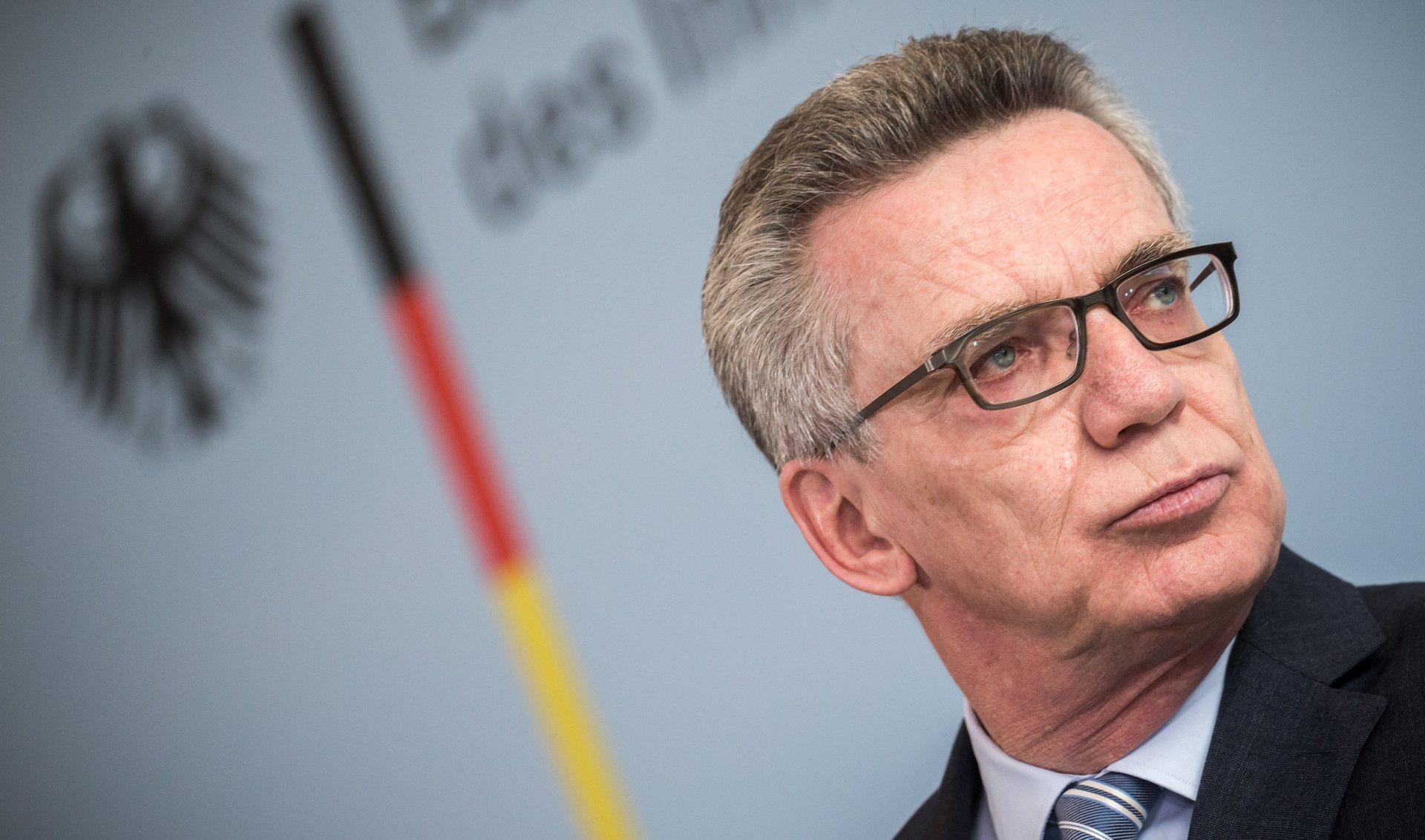Germany thinks the worst of the refugee crisis may be over
After receiving more than a million new refugees and migrants in the last year, Germany thinks the crisis may finally be receding.


After receiving more than a million new refugees and migrants in the last year, Germany thinks the crisis may finally be receding.
“It is with great caution that I say the high point of the migrant crisis is behind us,” interior minister Thomas de Maiziere told the Tagesspiegel newspaper yesterday (April 3).
The numbers of migrants arriving in Germany dropped to around 140 a day in March, he said, compared to thousands who streamed in, mainly across the Austrian border, a few months ago.
Border controls in Balkan states have had the biggest effect on migrant arrivals in Germany. The Bild newspaper reported that German reception centers designed to hold nearly 350,000 people are now less than half full.
De Maiziere went on to say that if refugees were to start using other routes to reach Germany, such as via Libya, then he would consider making some kind of arrangement with North African countries, similar to the deal the EU recently struck with Turkey.
“If, once more, more people come via this route, we will need to search for similar solutions as we did with Turkey and also enter into negotiations with North African countries,” he said. “I could imagine reception centres in North Africa for refugees who are returned from Italy, and in turn a humanitarian admission programme with the North African country in question.”
The widely criticized EU-Turkey deal—wherein Turkey will get billions in aid and other incentives in exchange for taking back migrants from the EU—went into effect on Monday morning. Boatloads of migrants, mainly from Pakistan, who’d made it across from Turkey to the Greek islands, were deported back to camps in Turkey.
Simultaneously, Syrian refugees were put on a plane from Turkey to Hannover, Germany in a one-for-one swap.
The dwindling numbers of new arrivals has given German chancellor Angela Merkel’s popularity a bump. A Stern-RTL poll last week showed her approval rating at 52%—the highest it’s been since the chancellor declared all refugees were welcome in the country last August, and more than a million people poured in.